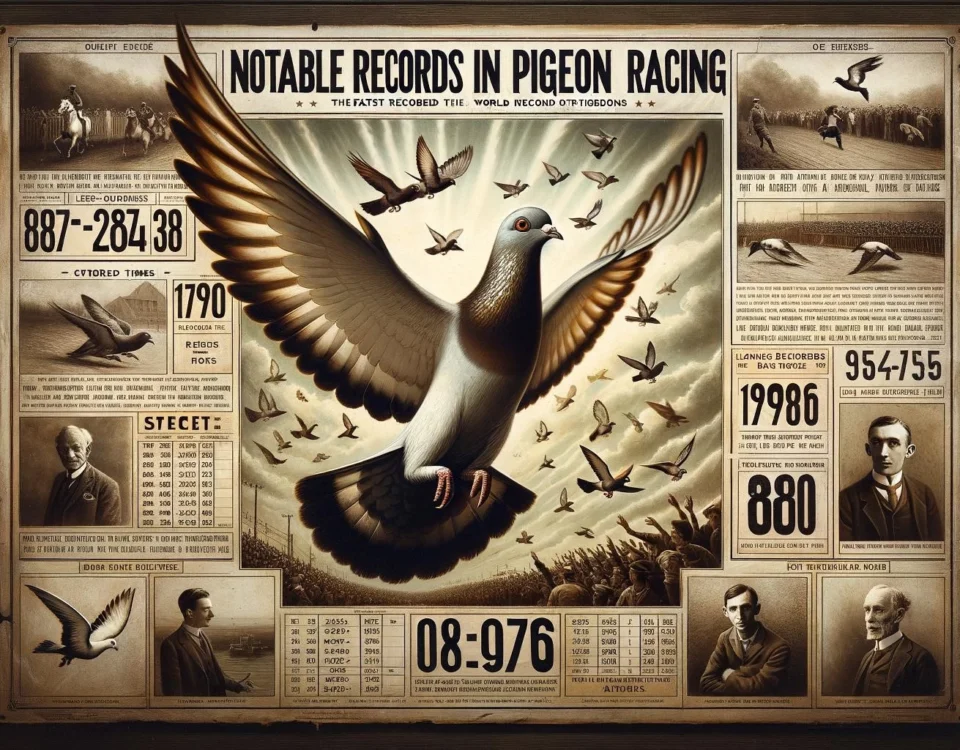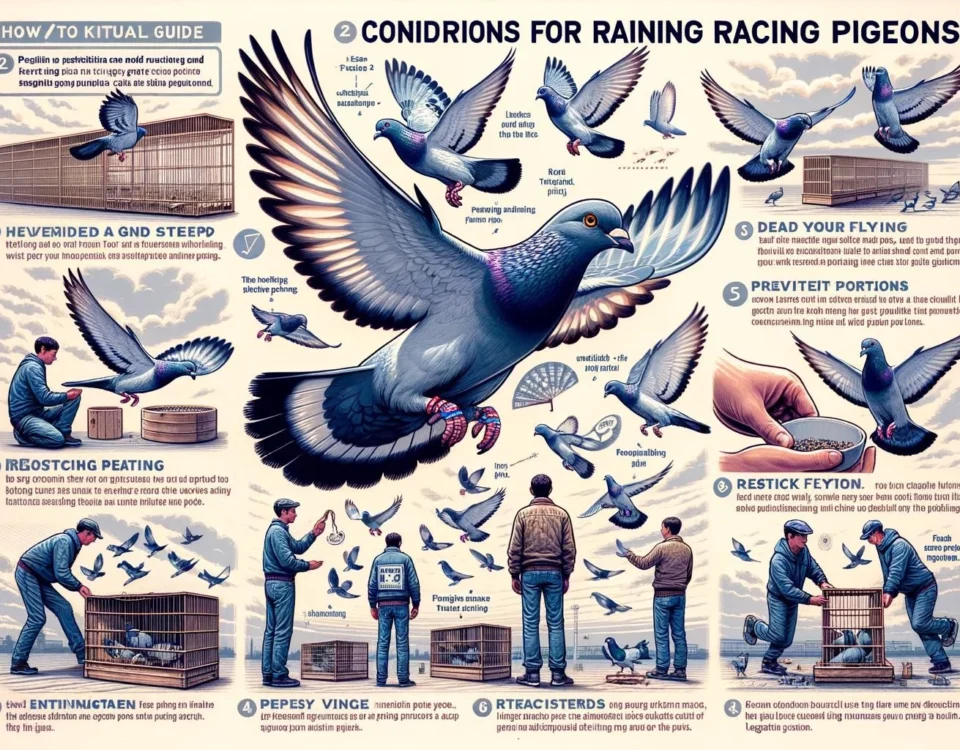Racing pigeons require a specific diet in order to maintain their health and optimize their performance. The right balance of nutrients is crucial for these birds, as their energy demands are higher due to their active nature and endurance required during races. In this article, we will explore the key aspects of a racing pigeon’s diet and the importance of proper nutrition to aid in their success on the racecourse.
Key Takeaways
- Racing pigeons need a diet that is high in protein and low in fat to maintain optimal performance.
- Their diet should include a variety of seeds, grains, and legumes to provide essential nutrients.
- Carbohydrates and fats are important energy sources for racing pigeons during long-distance flights.
- Supplements can be used to enhance their diet and provide additional nutritional support when needed.
Feeding racing pigeons a well-balanced and nutritious diet is essential for maintaining their health and ensuring they perform at their best on the racecourse. These birds have unique nutritional needs due to their active lifestyle and the physical demands placed on them during races.
Protein is a crucial component of a racing pigeon’s diet as it plays a vital role in muscle development and repair. Feed mixtures with a high protein content are important, especially during breeding, moulting, and for young birds in their growth phase.
Carbohydrates and fats are the primary sources of energy for racing pigeons during races. These energy-rich nutrients provide the fuel needed to sustain their flight over long distances. Carbohydrates can be found in grains such as corn, wheat, barley, and peas, while fats are present in seeds like safflower and sunflower.
In addition to protein, carbohydrates, and fats, racing pigeons also require essential vitamins and minerals to support their overall health and well-being. These nutrients can be obtained through a balanced diet that includes a variety of seeds, grains, legumes, fruits, and vegetables.
A Balanced Diet for Racing Pigeons
A balanced diet for racing pigeons consists of various components that provide the necessary nutrients for their optimal performance. Here are some of the key elements of a racing pigeon’s diet:
Seeds and Grains:
Seeds and grains form the foundation of a racing pigeon’s diet. Some commonly included options are corn, peas, wheat, barley, safflower, and sunflower seeds. These ingredients are high in carbohydrates and provide the energy needed for endurance flights.
Legumes:
Legumes such as beans and peas are rich sources of protein and can be an excellent addition to a racing pigeon’s diet. They provide essential amino acids necessary for muscle development and repair.
Fruits and Vegetables:
Fruits and vegetables are important sources of vitamins, minerals, and antioxidants. Including a variety of fresh produce in a racing pigeon’s diet helps support their immune system and overall health. Some suitable options include apples, berries, carrots, and leafy greens.
Supplements:
In certain cases, supplements can be beneficial to provide additional nutritional support. These supplements may include vitamins, minerals, probiotics, and electrolytes. It is important to consult with a veterinarian or avian nutrition specialist to determine the specific needs of racing pigeons and what supplements are appropriate.
Feeding Strategies for Racing Pigeons
Feeding racing pigeons involves careful planning and consideration of their specific nutritional requirements.
It is recommended to feed racing pigeons twice a day, ideally in the morning and evening. The amount of food provided should be enough for the birds to consume within a few hours, ensuring freshness and preventing spoilage.
Monitoring the birds’ weight is important to ensure they are in good condition. Overfeeding should be avoided, as excess weight can hamper their performance. Additionally, it is important to avoid feeding pigeons food that is high in fat just before races, as this can lead to indigestion and decreased performance.
Water is also a vital part of a racing pigeon’s diet. Clean, fresh water should always be available to them, especially after races to aid in rehydration.
Conclusion
The diet of racing pigeons plays a crucial role in their overall health, endurance, and performance on the racecourse. Providing a well-balanced diet that is high in protein, carbohydrates, and essential nutrients is essential for supporting their muscle development, energy requirements, and overall well-being. By keeping their nutritional needs in mind, and consulting with experts if necessary, pigeon fanciers can help their birds reach their full potential on the racetrack.









